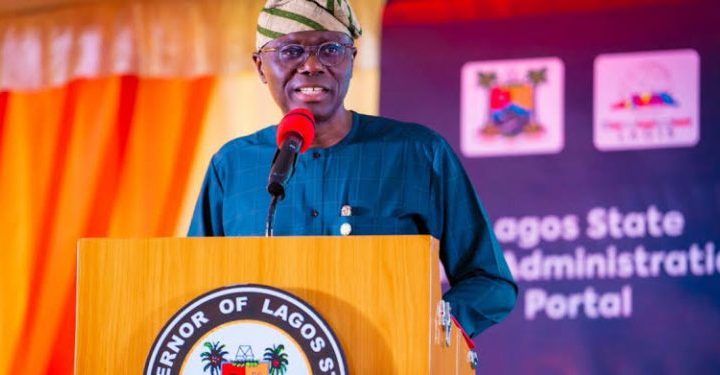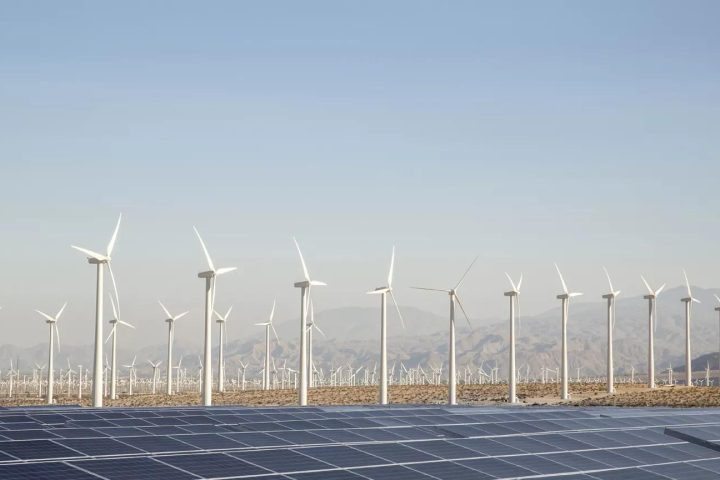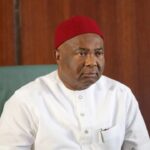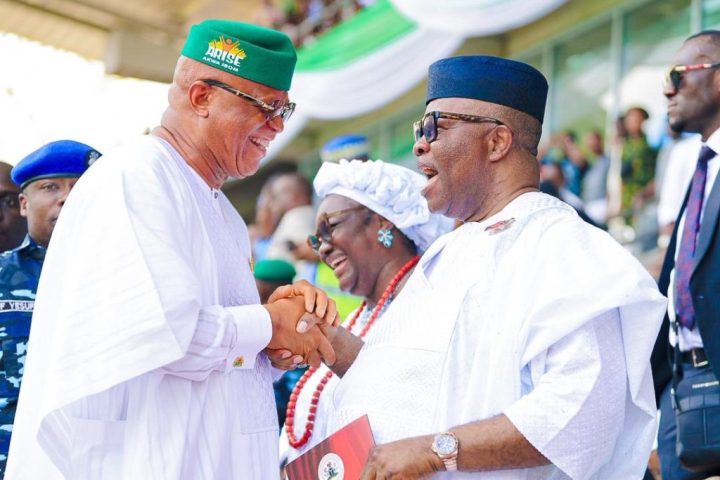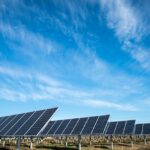The Nigerian government’s proposed ban on the importation of solar panels, aimed at promoting local manufacturing, has sparked significant debate about its potential impact on renewable energy projects in the country.
Minister of Science and Technology, Uche Nnaji, who made the disclosure in Abuja recently, said the move aligns with Presidential Executive Order No. 5, which seeks to promote local content in science, engineering, and technology.
Join our WhatsApp ChannelNnaji claimed that Nigeria is already making significant investments in renewable energy infrastructure, and that the country has the capacity to meet its solar energy demands domestically, with organisations such as the National Agency for Science and Engineering Infrastructure (NASENI) playing an important role in solar panel production.
The minister projected that as local solar panel manufacturing increases, more Nigerian families and institutions would switch to off-grid power alternatives.
He boasted that Nigeria has raw materials like lithium in abundance and the president is already taking steps to ensure that the resources are properly utilised for the production of batteries and other products needed. “The lithium we have here will be processed and used as batteries for these vehicles,” the minister stated.
Nnaji revealed that NASENI and some other private entities have set up factories for producing solar panels in the country. “So, all we need to do is, even through science and technology, through our Presidential Executive Order No. 5, we will stop all these importations of solar panels.
“We will support our local industries to grow, and very soon, most houses will go off-grid. Personally, I have been off-grid for over three years and it is working,” he further stated.
READ ALSO: Can Investment In Renewable Energy Resolve Nigeria’s Power Crisis?
In addition to solar panel manufacture, Nnaji stated that the government is working on mini-grid solutions to supply reliable electricity to essential sectors like as hospitals, schools, and businesses. He indicated that budget allocations for mini-grids have already been made, and significant deployment is expected within months.
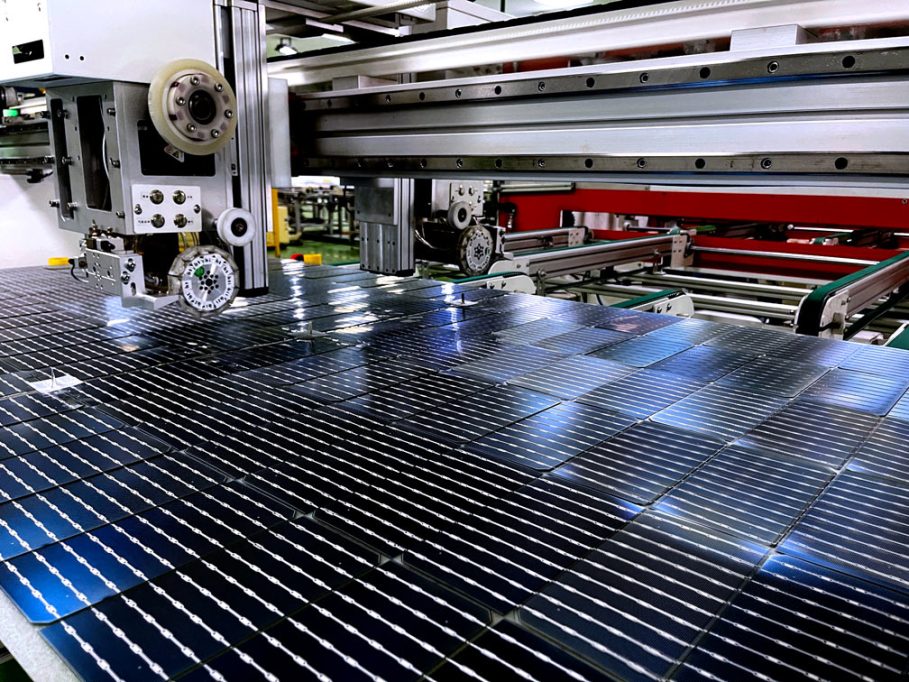
Growing Solar Energy Adoption
The quest for transition to a cleaner form of energy and the end of the fuel subsidy regime, which led to high cost of fuel, amid epileptic power supply from the conventional grid system, increased interest in the adoption of solar as an alternative source of energy.
A report by Africa Solar Industry Association (AFSIA) indicated that Nigeria was ranked 4th in Africa for solar energy adoption in 2024, adding 63.5 MWp of capacity, bringing its total installed capacity to 385.7 MWp. However, it still accounts for only 1.6% of Nigeria’s overall energy mix, with solar installations in Africa reaching 2.5 GWp in 2024.
Experts have expressed optimism that with her natural endowments, including abundant sunshine, Nigeria has great potential for harnessing solar power.
With the growing adoption of solar energy in Nigeria, there is more reliance on the importation of the equipment, including panels.
Concerns about Nigerian Government’s proposed Solar Panel Import ban
While the Nigerian government’s quest is to boost local manufacturing of solar equipment, the proposal has sparked robust debates about the impact on renewable energy projects.
Some analysts who support the ban stated that it would address the challenges of high importation costs and a reliance on foreign technology. Reports indicated that Nigeria imported over 4 million solar panels, valued at more than $200 million, in 2023. The proponents of the import ban argued that local manufacturing would reduce costs, improve access and also create jobs.
READ ALSO: Renewable Energy: The Hottest Investment Space in Africa
However, others expressed concerns that the proposal for an outright ban on importation may affect existing financing arrangements and investments in renewable energy projects in the country. Recently, the country signed a landmark 2,600-megawatt (MW) solar module supply agreement with LONGi Solar France SARL. The modules will be used to power Nigeria’s Green Hydrogen Hub Project in the Liberty Oil & Gas Free Trade Zone in Akwa Ibom State.
Can the current Production Level Meet Local Demands?
Experts questioned NASENI’s ability to meet the demand surge that would occur as a result of an import restriction. Industry players say that NASENI’s present production output is significantly lower than what is required to maintain Nigeria’s developing renewable energy sector. Concerns have also been expressed regarding the cost and quality of locally produced panels in comparison with imported ones.
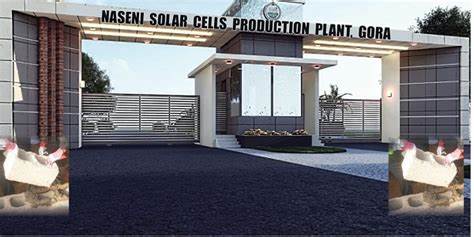
Commenting on the proposed ban on the importation of solar panels, energy expert, Jide Pratt, who is the Country Manager, Tradegrid, said stopping the importation of solar panels now would have an adverse effect on the advancement of renewable energy projects in the country. “If we want to stop importation, then it will have a massive adverse effect on growth in terms of renewable energy,” Pratt stated in an interview with News Central TV.
While acknowledging that local manufacturing is a way of encouraging domestic production, he, however, stressed that banning importation can be done when about 70% of local capacity to meet in-country demands has been built.
He said Nigeria has Lithium, which is a major component in the production of batteries, but the country has not been able to harness it into a standard that can be utilised to manufacture batteries locally. “Until those stages happen, a ban is not even an option,” he warned.
He said some of the companies positioning to be producing solar panels locally may end up engaging in importation, while giving the impression of producing them locally.
The energy expert advised that what the Federal Government needs to do now is create more incentives, such as tax waivers, a conducive environment for the manufacturers to be able to produce locally and begin to scale before talking about a ban on importation. “They should not talk about a ban until local production or manufacturing has gotten to at least 70%,” he added.
Similarly, an economist and financial analyst, Kalu Aja, advised that before embarking on such action, the government should ensure that “the local economy can produce these panels; otherwise, you’ll increase costs and contribute to inflation.”
While noting that manufacturing in Nigeria is expensive, Mr Aja called for support of local panel manufacturers to ensure their prices are competitive with imported ones, and gradually reduce imports.
An economic expert and Co-Founder of VerivAfrica, Mr Basil Abia, said the plan by the Tinubu’s government to ban solar panel imports “will only increase the price of solar panels as Nigeria doesn’t have the capacity for mass production yet.”
Mr Abia criticised the seemingly usual government’s policy of “ban first, meet demand later,” stating that it is “cataclysmic to the economy.”
He cautioned that: “Solar power components are already super expensive in Nigeria due to expensive FX, imagine the further cost implications once an import ban takes effect. It will be suicidal!”
Some Nigerians criticised the decision on social media
“Have we reached the point in production where we can compete with the imported ones? The same thing that happened with rice will happen with solar if the right support for local manufacturing is not provided,” an X user Yomi Adetunji, @yomiadetunji_cg wrote.
“A country with a major energy deficit has no business banning solar panels. In fact, solar panels should be import-duty free in Nigeria,” another X user, Edena MD @edenamoris stated.
Victor Ezeja is a passionate journalist with seven years of experience writing on economy, politics and energy. He holds a Master's degree in Mass Communication.






